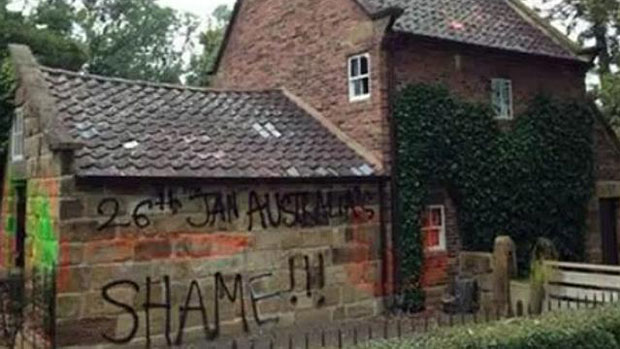Australia Day: Why 26 January continues to divide Aussies
Most Aussies celebrate 26 January in the sun, but the commemoration of white settlement angers others

A free daily email with the biggest news stories of the day – and the best features from TheWeek.com
You are now subscribed
Your newsletter sign-up was successful
AUSTRALIA'S national day is celebrated each year on 26 January with the ignition of thousands of barbeques and the downing of millions of cold beers. But Australia Day – which marks the establishment of the first European settlement in 1788 – is regarded as a day of shame by some Australians. Here are five key questions about the event:
Why is Australia Day on 26 January?
Australia was explored and claimed as British territory by Lieutenant James Cook in 1770. Eighteen years later, 11 ships under the command of Captain Arthur Phillip arrived in Australian waters to set up a penal colony. Early on the morning of 26 January, Phillip and some of his men rowed ashore at Sydney Cove and raised the Union Jack.
The Week
Escape your echo chamber. Get the facts behind the news, plus analysis from multiple perspectives.

Sign up for The Week's Free Newsletters
From our morning news briefing to a weekly Good News Newsletter, get the best of The Week delivered directly to your inbox.
From our morning news briefing to a weekly Good News Newsletter, get the best of The Week delivered directly to your inbox.
When did Australia Day come into being?
Like many things in Australia, Australia Day is a relatively recent innovation, the Australia Day website reveals. It wasn't until 1935 that every Australian state and territory began using the name Australia Day to mark the anniversary of the First Fleet's arrival. And it wasn't until 1994 that the entire country began to "celebrate Australia Day consistently as a public holiday on that date".
What happens on Australia Day?
Celebrations range from boozy summer parties at the beach to parades, concerts and formal citizenship ceremonies for new migrants and their families. The Australian flag is much in evidence and there are occasional, isolated, outbreaks of xenophobia. In 2007, for example, the annual Big Day Out festival – which is often held on 26 January - sparked controversy by asking music fans to leave their Australian flags at home. The call was a response to incidents the previous year when some youths "were assaulted and abused for refusing to kiss the flag," the ABC reports.
A free daily email with the biggest news stories of the day – and the best features from TheWeek.com
Why is Australia Day controversial?
Some Australians – both indigenous and non-indigenous – refer to 26 January as "Invasion Day". They argue that the brutal treatment of the Aborigines by white settlers and the legacy of disease and addiction they inflicted on Australia's first people makes it impossible to celebrate the arrival of Europeans. The issue continues to be a hot-button. This week Captain Cook's historic home, rebuilt in Melbourne after being shipped from England, was sprayed with graffiti by activists in a protest against Australia Day. Phrases such as "26th Jan Australia's shame" were daubed on to the two-story stone building, known as Cook's Cottage, Sky News reports.
Will the day ever unite Australia?
That seems unlikely. Despite efforts to reconcile white and indigenous Australians, Australia Day continues to be a reminder of oppression to some. "To many Aboriginal people there is little to celebrate and it is a commemoration of a deep loss," says the Creative Spirits website. "Loss of their sovereign rights to their land, loss of family, loss of the right to practice their culture."